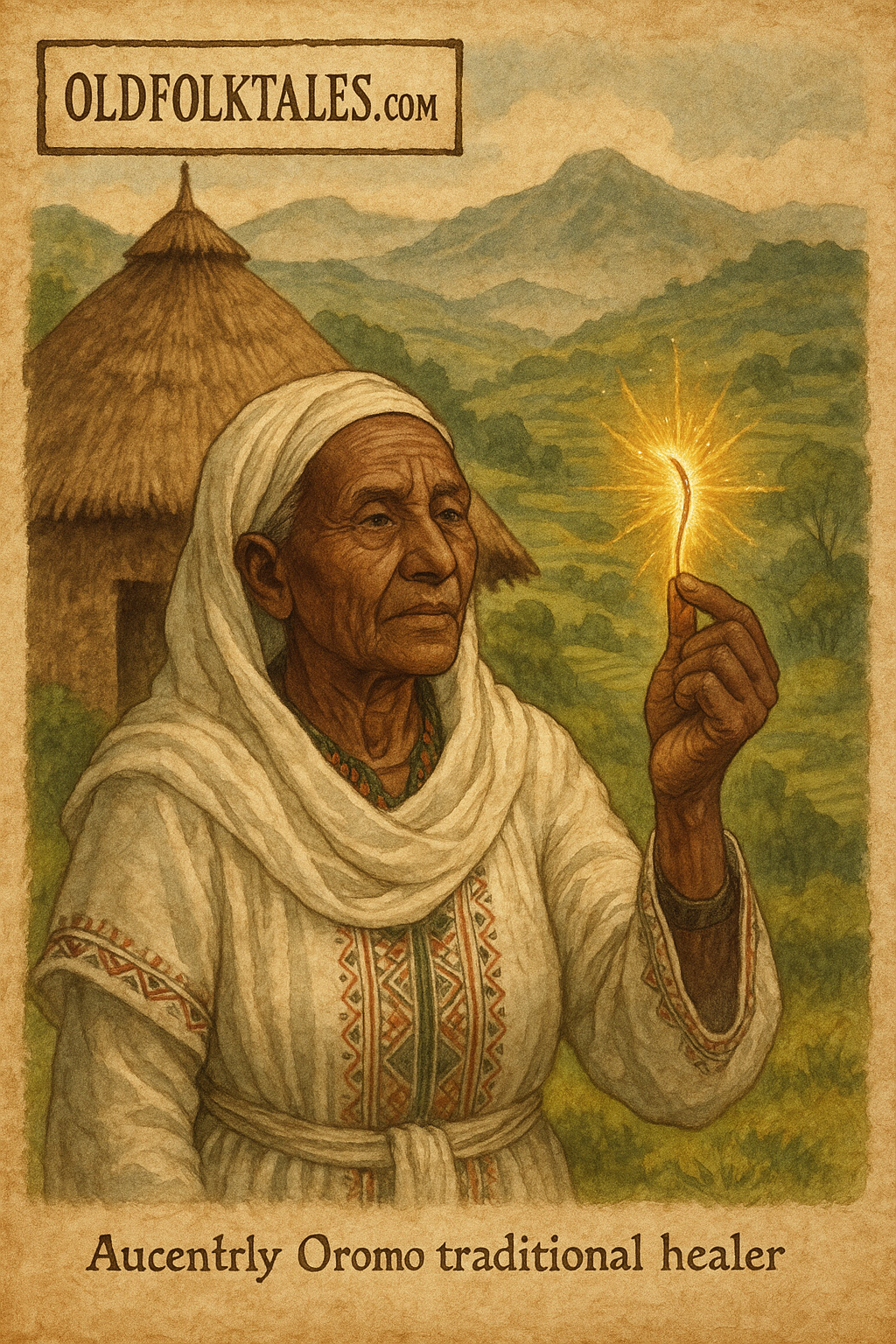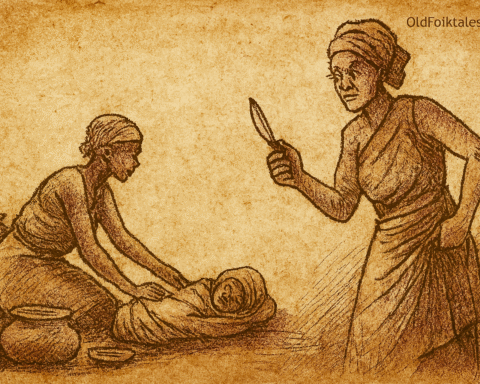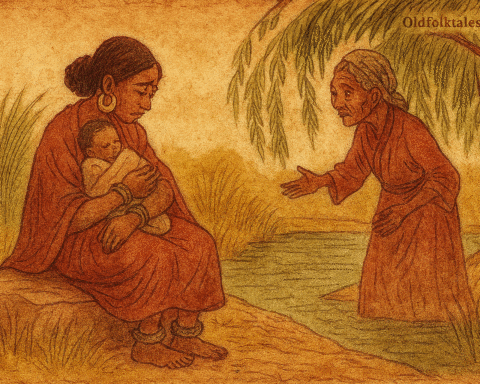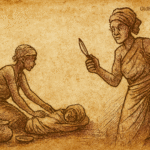Long ago, in a quiet Igbo village surrounded by thick forests, there lived a young woman named Nkem. She had married a brave hunter named Obinna, but after a few seasons of marriage, their home no longer felt warm. They argued often, and Obinna had grown distant. Nkem longed for the laughter they once shared, yet every attempt to talk only deepened the silence between them.
Nkem’s heart pounded. A leopard? Everyone in the village knew that leopards were the fiercest creatures in the forest. But Mama Uduak’s voice was calm. “Do not fear. The leopard’s whisker will not harm you if you earn it with care and patience. Go each day to the deep forest, and I will tell you what to do.“
The next morning, Nkem rose before dawn. She carried a small pot of goat stew, its smell drifting into the cool air. She walked to the edge of the forest, where the trees stood tall like silent guards. She placed the pot on a flat stone, then stepped back into the shadows. She waited until the sun began to warm the earth, and then she saw it: the golden eyes of a leopard glinting from the undergrowth. It crept forward, sniffed the stew, and ate, never once looking at her. When it was done, it melted back into the forest.
Nkem did the same the next day, and the next, always leaving a pot of food, always keeping her distance. Weeks passed, and each time, the leopard came closer before eating. It no longer bared its teeth. Its eyes, once sharp with suspicion, began to soften with recognition.
One morning, Mama Uduak told her, “Today is the day. Take the stew as always, but carry a sharp knife. When the leopard bends to eat, reach forward gently and cut a single whisker. Do not harm it. Do not show fear.“
Nkem’s hands trembled as she approached the forest. The leopard was waiting this time, sitting like a great shadow beneath the trees. She placed the pot before it and watched as it began to eat. Her heart thudded in her ears. Slowly, she stepped forward, close enough to see the rise and fall of its breath. With one swift, gentle movement, she cut a whisker and stepped back. The leopard did not growl. It looked at her, then returned to its meal.
Nkem hurried to Mama Uduak’s hut, her prize clutched in her hand. She placed the whisker on the old woman’s table. Mama Uduak smiled, but instead of making a potion, she pushed the whisker back to Nkem. “You no longer need this,” she said. “You have already learned the secret.“
Nkem frowned. “What do you mean?“
Mama Uduak’s voice was warm. “You tamed the leopard not with force, but with patience, care, and understanding. If you show the same to Obinna, your home will heal. People are like leopards. They cannot be forced to trust. They must be approached with kindness and consistency.“
That night, Nkem returned home and began to change her ways. She no longer demanded Obinna’s attention or scolded him for his distance. Instead, she listened more, spoke gently, and found small ways to bring warmth into their days. Slowly, like the leopard in the forest, Obinna began to draw near. His laughter returned, and the peace she had sought filled their home once more.
Years later, when Nkem told this story to her children, she would hold up the leopard’s whisker, now tied to a cord, as a reminder that patience and love could tame even the wildest hearts.
Moral Lesson
The Leopard’s Whisker teaches that true change in others comes not through force, but through steady patience, kindness, and understanding. Just as the leopard learned to trust Nkem through her gentle actions, we too can mend relationships by showing consistent care and empathy. When we meet others with love instead of anger, we open the door to healing, peace, and lasting connection.
Knowledge Check
- What is the main lesson of The Leopard’s Whisker folktale?
The story teaches that patience, kindness, and understanding are the keys to building trust and mending relationships. - How did Nkem earn the leopard’s trust in The Leopard’s Whisker?
She visited daily, fed the leopard without fear, and allowed it time to grow comfortable with her presence. - Why did Mama Uduak send Nkem to get the leopard’s whisker?
It was a symbolic challenge to teach Nkem that patience and gentle care can achieve what force cannot. - What role does the leopard play in The Leopard’s Whisker folktale?
The leopard serves as a metaphor for trust and the idea that even the fiercest hearts can be softened through kindness. - How did Nkem apply the lesson of the leopard’s whisker in her marriage?
She approached her husband with patience, gentle communication, and acts of care, which restored peace in their home. - Why is The Leopard’s Whisker an important African folktale for modern readers?
It offers timeless wisdom about relationships, teaching that empathy and patience can overcome conflict and restore harmony.
Cultural Origin
This version of The Leopard’s Whisker is rooted in Igbo storytelling traditions of southeastern Nigeria, where animal tales are often used to convey deep moral lessons about human behavior and relationships.




